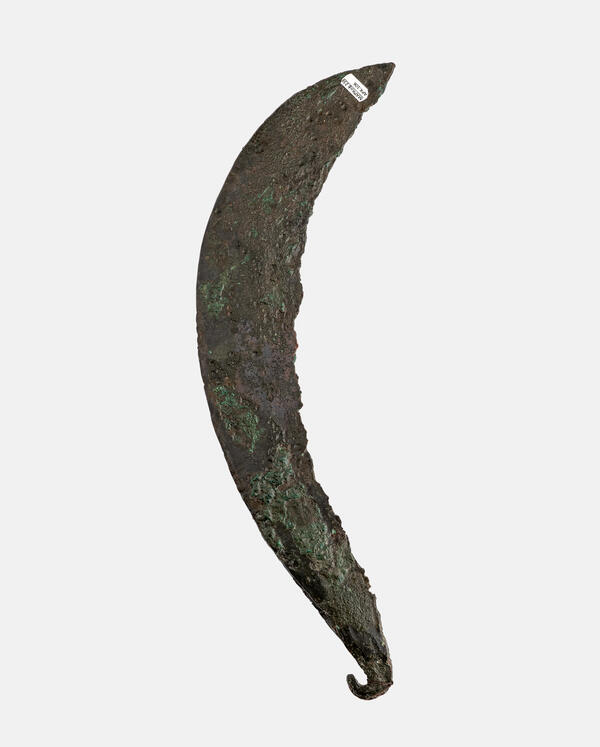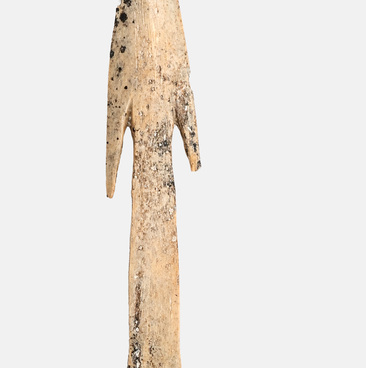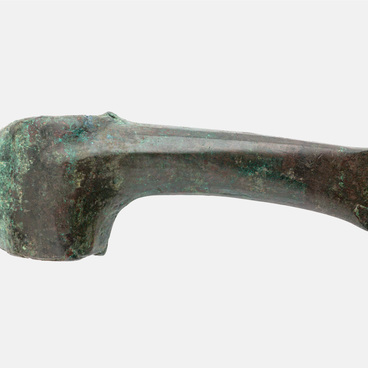In 2001, the expedition of the “Arkaim” Museum-Reserve led by Larisa Petrova studied the Lebyazhye VI settlement, located on the right bank of the Zingeyka River, 4.8 kilometers northeast of the village of Katsbakhsky, Kizilsky district, Chelyabinsk region. Lebyazhye VI is an unfortified settlement of the Late Bronze Age. As it turned out, the principles of building the dwellings of Lebyazhye VI continued the traditions of the “Land of Cities”, but only as it related to detached dwellings. The finds include bronze, bone, stone and clay items.
The hoard of five bronze sickles, found in the supposed household annex of dwelling 2, presents the greatest interest. There was a hearth and hollows with traces of coal and calcination in the immediate surroundings of the dwelling, which served for household needs. The structure was destroyed by fire. The sickles were probably stored in the upper part of the wall under the roof and fell together with the remains of the burned walls and roof, which collapsed at the end of the fire. All the discovered sickles are housed in the “Arkaim” Museum-Reserve.
The blade of the sickle on display is broadened from the middle to the tip. The curve of the back is roundly asymmetrical, the flat edge of the back is massive, narrowing towards the tip. The rounded line of the blade is sharpened on one side, the end is pointed on the blade side. The tanged part is flattened, designed in the form of a flat hook pointed at the end for attaching the hilt.
The sickle can be attributed to hooked sickles typical of Srubnaya culture. Such sickles were widespread in the Volga region and the Urals. Archaeologists find similar and identical sickle-shaped items on Bronze Age sites. Archaeobotanical studies show that in the Late Bronze Age the local population was not engaged in agriculture, despite the favorable climate, and lived off animal products, fish and wild plants. Complex animal husbandry was the main livelihood of the local population throughout the Bronze Age, and sickles were most likely used to procure feed for animals.


